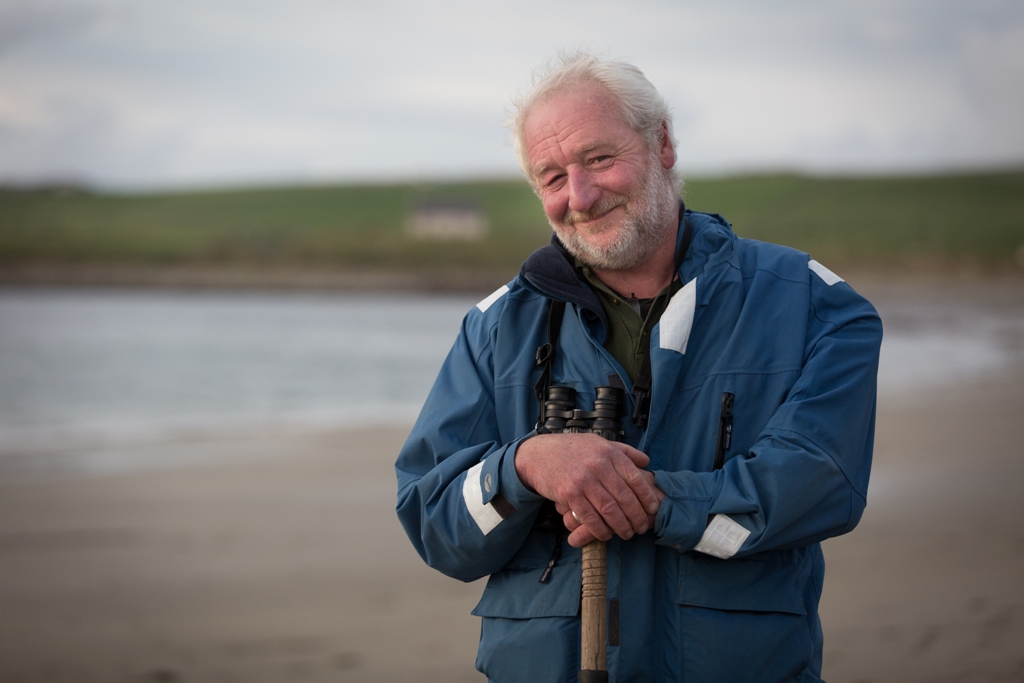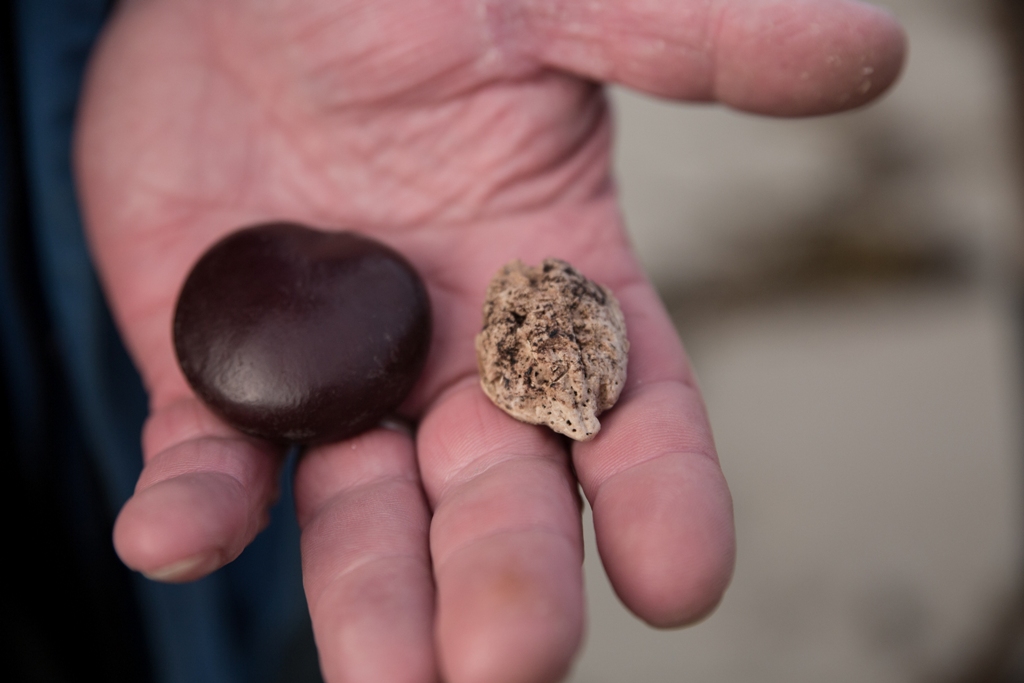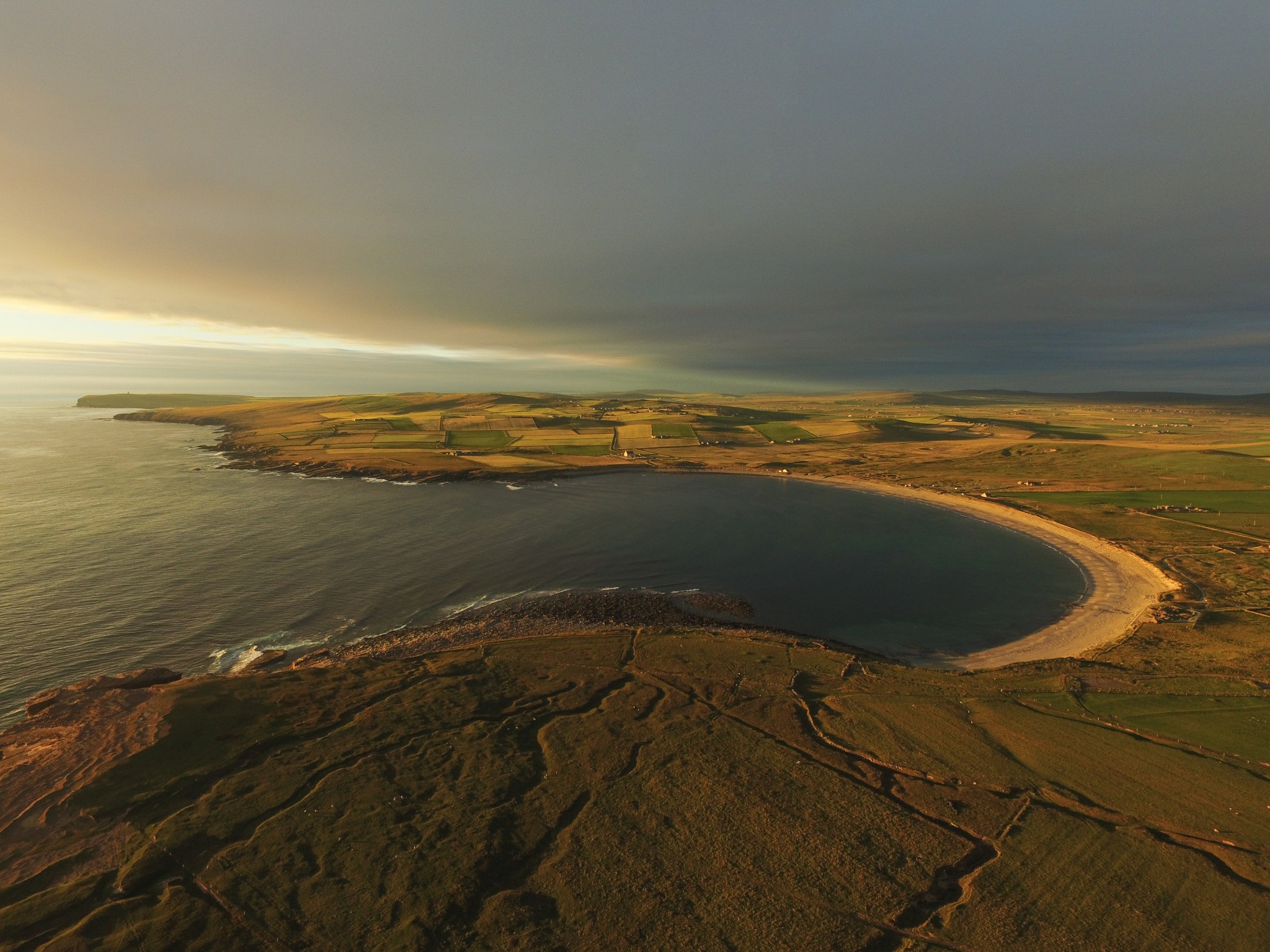We joined seasoned beachcomber, Martin Gray, at Skaill on the west coast of the mainland to find out why these parts of Orkney are so special to him.
"I think I was just born a scavenger. I’ve always been fascinated by beaches, about where the land meets the sea and how things finish up there."
Beachcombing is in the blood for Martin Gray. He has always been drawn to Orkney’s coast – even from an early age he admits he was captivated by the sand and shore, the slippery rocks and the different habitats, all teeming with life.

It’s something that has stayed with him in adult life too. A brief period living down south didn’t diminish his interest in Orkney’s natural world, and now he’s home again he’s keen to get as many minutes and hours as possible on the beach, scouring island shores for something unique, or simply something that catches his eye.
“I missed the beaches and the coast when I wasn’t here,” said Martin. “I think they’re some of Orkney’s best assets, and they’re largely untapped. I’m never happier than when I’m on a beach, and with views like this, it’s no wonder.”
Martin was speaking whilst standing on the silver sand of the Bay of Skaill, just a few hundred metres from the Neolithic village of Skara Brae. The autumn sky is full of golden colour as the sun begins to set over the nearby headland and the Atlantic Ocean beyond. There is a breeze blowing across the empty beach, and it’s not hard to understand the attraction.
It’s not just the beautiful scenery that brings Martin back to the beaches time and time again though. His trips help to satisfy his natural curiosity too.
“Things can wash up here from anywhere in the north Atlantic – and I mean anywhere, from Greenland and North America to as far south as Spain, Portugal and even north Africa,” said Martin. “All that, the hundreds of thousands of square miles of ocean, can affect this beach here, within yards of where I’m standing. I just find that fascinating.”
Walking along the beach with him is quite an experience. He is constantly scanning the sand, always on the lookout for something alien on the shore or amongst the seaweed. His regular finds include lobster-pot tags and labels from the fishing industry in New England, and even floats from vessels working out of Cape Cod and Nova Scotia. It’s finds like these where the power of social media is evident.
Martin runs the popular Orkney Beachcombing Facebook page and regularly posts pictures of the items he comes across in the sand. Over the years it has built up quite a following.
“Facebook can be a double-edged sword,” said Martin. On one hand it can be full of nonsense – pictures of kittens and people’s dinners, that kind of thing – but for something like beachcombing, it’s incredible. It means you have access to a huge audience of people who have the knowledge you’re after.”
“I found a float on the beach at Billia Croo a few years ago and posted the picture on a lobster-fishing Facebook page in New England. Seven minutes later I was chatting to the person who had lost the float. That, to me, is just unreal!”
He is always searching for special finds too. The holy grail is the sea-bean, seeds which end up in Orkney from mangrove swamps in Caribbean. Only the most experienced beachcomber knows what to look for when on the hunt for that kind of thing.
Martin has two.
He also has a whale’s tooth, pumice stones and beautiful bits of bark that have travelled to Orkney across an ocean. “You always hope for the exotic and the remarkable, but sometimes the greatest personal pleasure can come from something very simple,” said Martin. “A beautiful bit of driftwood, shaped by the sea, or a bonny stone, it could be anything. The rare and special finds are worthwhile, but that’s not what it’s all about.”

“People tend to gravitate to our main attractions when they’re in the islands,” said Martin. “But I’d definitely say to them, if they get the chance, to go to the beach. Go for a walk, sit down and take it all in. And then relax.”
Follow Martin’s Orkney Beachcombing page on Facebook to see some of the finds being reported from around the islands.
Autumn and winter are great times to experience Orkney’s beaches and do some of your own beachcombing – find out more about the islands and search for your ideal accommodation.
The Promoting Orkney project has been part financed by the Scottish Government and the European Community Orkney LEADER 2014-2020 Programme.



